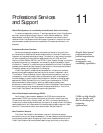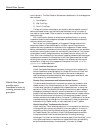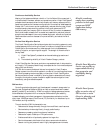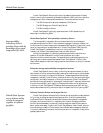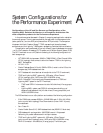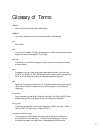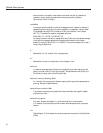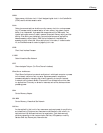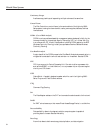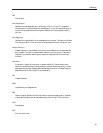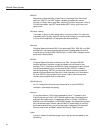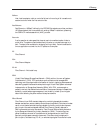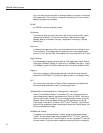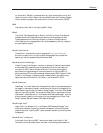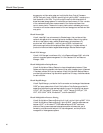
CARB
Cache memory Arbitrator circuit. Hitachi designed logical circuit in the Cache Switch
(CSW) used to arbitrate access to cache.
Cache
Cache (pronounced cash) can be either on-chip memory circuits in a microprocessor
(e.g. L2 processor cache), a reserved section of main memory (e.g. system or server
cache), or an independent, high-speed disk storage device (e.g. a Web cache). Two
types of caching are commonly used in personal computers: memory caching and disk
caching. Disk caching can dramatically improve the performance of applications,
because accessing a byte of data in RAM can be thousands of times faster than
accessing a byte on a hard disk. When data is found in the cache, it is called a cache
hit, and the effectiveness of a cache is judged by its hit rate.
CHIP
Client Host Interface Processor.
C–HSN
Cache Hierarchical Star Network.
CHT
Channel adapter Tachyon. (For Fibre Channel interfaces).
Client/Server Architecture
Client/Server Architecture is a network architecture in which each computer or process
on the network is either a client or a server. Servers are powerful computers or
processors dedicated to managing disk drives (file servers), printers (print servers),
or network traffic (network servers). Clients are PCs or workstations on which users
run applications. Clients rely on servers for resources, such as files, devices, and even
processing power.
CMA
Control Memory Adapter.
CM–HSN
Control Memory, Hierarchical Star Network.
Cold site
An alternate facility that is void of any resources or equipment except air-conditioning
and raised flooring. Equipment and resources must be installed in such a facility to
duplicate the critical business functions of an organization. Cold sites have many
variations, depending on their communication facilities, UPS systems, or mobility.
See also: Shell site, Recovery site, Alternative site.
53
Glossary



